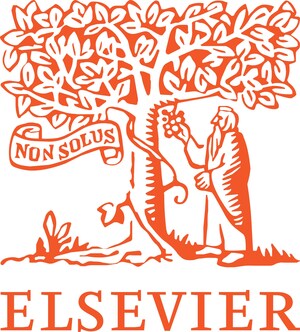
Dr. Anthony T. Barker Wins First International Brain Stimulation Award
NEW YORK, August 10, 2016 /PRNewswire/ --
Award Honors Outstanding Contributions to the Field of Brain Stimulation
Elsevier, a world-leading provider of scientific, technical and medical information products and services, today announced that Dr. Anthony T. Barker is the inaugural recipient of the International Brain Stimulation Award. Dr. Barker is receiving this award for his pioneering work in developing transcranial magnetic stimulation (TMS), a noninvasive and pain-free method of stimulating specific brain areas.
The International Brain Stimulation Award acknowledges outstanding contributions to the field of brain stimulation. These contributions may be in basic, translational, or clinical aspects of neuromodulation, and must have had a profound influence in shaping this exciting and fast growing field of neuroscience and medicine. The Senior Editors and Deputy Editors of Brain Stimulation: Basic, Translational and Clinical Research in Neuromodulation determine the awardee and will present the award at the 2nd International Brain Stimulation Conference, March 5-8, 2017 in Barcelona, Spain.
Dr. Barker was born in Morley, Leeds, UK in 1950 and he received his Bachelors in Engineering in 1971 from the University of Sheffield, and obtained a PhD in there in 1976. From 1976 to 1990 he worked as a physicist at the Royal Hallamshire Hospital, and had title of Lecturer at the University of Sheffield (1977-1999). Since 1999 he has been a Professor Associate at the University of Sheffield and is a Consultant Clinical Scientist in the Department of Medical Physics and Clinical Engineering at the Royal Hallamshire Hospital, Sheffield, UK.
Dr. Barker first started his research on using time-varying magnetic fields to induce current flow in tissue in order to depolarize neurons. Prior to this effort, direct electrical stimulation, with electrodes placed on the scalp (or other body part), was the principle method used to induce neuronal depolarization. However, this method had several flaws, and the high intensity of electrical stimulation is often painful. Magnetic fields, in contract, pass through the scalp and skull unimpeded, and give much more precise results. In 1985, Drs. Barker, Jalinous, and Freeston reported the first demonstration of TMS. Dr. Barker and colleagues produced twitching in a specific area of the hand in human volunteers by applying TMS to the motor cortex in the opposite hemisphere that controls movement of that muscle. This demonstrated that TMS was capable of stimulating precise area of brain and without the pain of electrical stimulation. Moreover, they did this in awake alert human volunteers.
Today, TMS has become a vital tool in neuroscience, since depending on stimulation parameters, specific brain areas can either be excited or inhibited. Thus, Dr. Barker's original demonstration of a noninvasive and pain-free method of stimulating specific brain areas has evolved into a critical tool in basic neuroscience investigation, in the study of brain abnormalities in disease states, and in the treatment of a host of neurological and psychiatric conditions. Since 1985, there have been several thousand publications involving TMS.
"Every now and then in science someone makes a discovery or invents a tool, or both, that launches a revolution," commented Mark George, MD, Editor-in-Chief of Brain Stimulation and Co-Chair of the 2nd International Brain Stimulation Conference. "Dr. Tony Barker is that person in the field of non-invasive brain stimulation. He built the first TMS devices that were able to stimulate the brain in an awake adult focally and non-invasively. This discovery has rippled forward creating an entire field of researchers using TMS to understand how the brain works and to use TMS to change the brain and treat diseases like depression. There could be no better choice to receive this first most prestigious award."
Dr. Harold A. Sackeim, Professor, Departments of Psychiatry and Radiology, Columbia University and Founding Editor of Brain Stimulation added: "The field of brain stimulation has exploded, with the development of multiple techniques to physically and focally alter brain function. Dr. Barker's invention of the first reliable method for TMS propelled the field forward, providing the tools used in previously unimagined fields of inquiry and therapeutics. His contribution resulted in vastly increased knowledge about the workings of the brain and relief from suffering in countless individuals."
Note for editors
Reporters wanting to attend the award ceremony at the 2nd International Brain Stimulation Conference, March 5-8, 2017 should contact Richard Hart at [email protected] or +44 1460 247185.
About Elsevier
Elsevier is a world-leading provider of information solutions that enhance the performance of science, health, and technology professionals, empowering them to make better decisions, deliver better care, and sometimes make groundbreaking discoveries that advance the boundaries of knowledge and human progress. Elsevier provides web-based, digital solutions - among them ScienceDirect, Scopus, Elsevier Research Intelligence and ClinicalKey - and publishes over 2,500 journals, including The Lancet and Cell, and more than 35,000 book titles, including a number of iconic reference works. Elsevier is part of RELX Group, a world-leading provider of information and analytics for professional and business customers across industries. www.elsevier.com
Media contact:
Richard Hart
Elsevier
+44 1460 247185
SOURCE Elsevier







Share this article